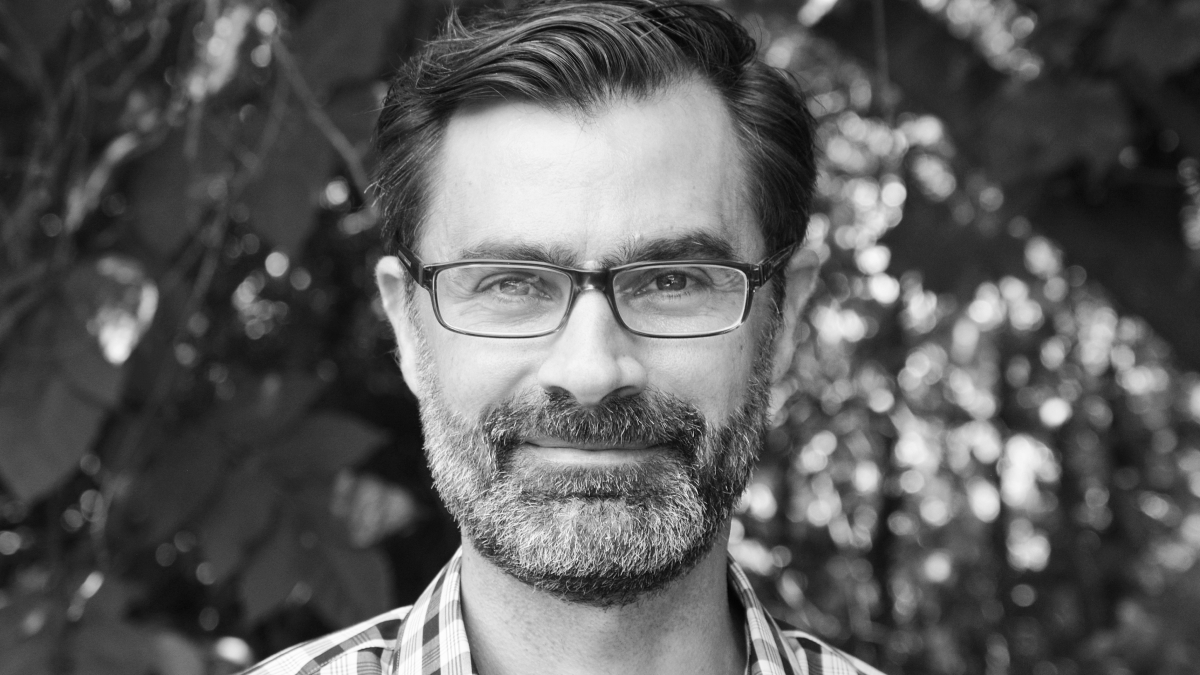Richard Amesbury joins ASU as new School of Historical, Philosophical and Religious Studies director

Richard Amesbury
Arizona State University's School of Historical, Philosophical and Religious Studies has announced its new director: Richard Amesbury.
Amesbury is a philosopher and scholar of religion and has served in many leadership roles prior to coming to ASU. While at the University of Zurich in Switzerland he was director for the Institute for Social Ethics and the Ethics Center. He has also served on many committees, journal and boards. Most recently, he was the chair of the department of philosophy and religion at Clemson University.
He received his doctorate in religion from Claremont Graduate University, a diploma in theology from Oxford University and his artium baccalaureus with a concentration in government from Harvard University.
“I am thrilled to have Dr. Richard Amesbury join us as the new director,” said Jeffrey Cohen, ASU's dean of humanities. “He is a scholar with interdisciplinary strengths who understands the unique mission and strengths of ASU. Under his leadership I am certain that the vibrant intellectual community that is SHPRSSchool of Historical, Philosophical and Religious Studies will continue to flourish for many years to come.”
His research focuses on the intersection of ethics, philosophy of religion and political theory. He has published many academic, online and encyclopedia articles, books and reviews on these topics and has more forthcoming.
“The world is rapidly being reshaped by a series of interrelated megatrends, including economic reorganization and increasing inequality, climate change, global migration, political disruption, technological acceleration and the digital revolution,” Amesbury said. “The humanities — disciplines like history, philosophy and religious studies — are well equipped to help us understand these changes and also to respond to them."
Philosophy Professor Joan McGregor was a member of the hiring committee for the new director. She says Amesbury is thoughtful, considerate and an active listener.
“A particular strength of Richard Amesbury is that he has demonstrated an ability to increase the connection between the disciplines of history, philosophy and religious studies and he has a compelling vision of the humanities,” she said.
“As a scholar with interests in multiple fields, I am delighted to be joining an interdisciplinary school of humanities," Amesbury said. "SHPRS is renowned for pathbreaking scholarship, innovative teaching and vibrant community engagement. I am honored to have been invited to build on that tradition and to help position the school to address new challenges."
Beginning in July, Amesbury will succeed religious studies Professor Tracy Fessenden, who has been the interim director of the School of Historical, Philosophical and Religious Studies for the past year.
“It is an honor to serve as interim director of SHPRS,” Fessenden said. “I look forward to continuing our fruitful collaboration as we await Professor Amesbury’s arrival and to extending to him our warmest welcome.”
Amesbury will be the school’s fourth director, after Mark Von Hagen, Matthew Garcia and Matthew Delmont.
More Arts, humanities and education

ASU professor's project helps students learn complex topics
One of Arizona State University’s top professors is using her signature research project to improve how college students learn…

Award-winning playwright shares her scriptwriting process with ASU students
Actions speak louder than words. That’s why award-winning playwright Y York is workshopping her latest play, "Becoming…

Exceeding great expectations in downtown Mesa
Anyone visiting downtown Mesa over the past couple of years has a lot to rave about: The bevy of restaurants, unique local shops…

